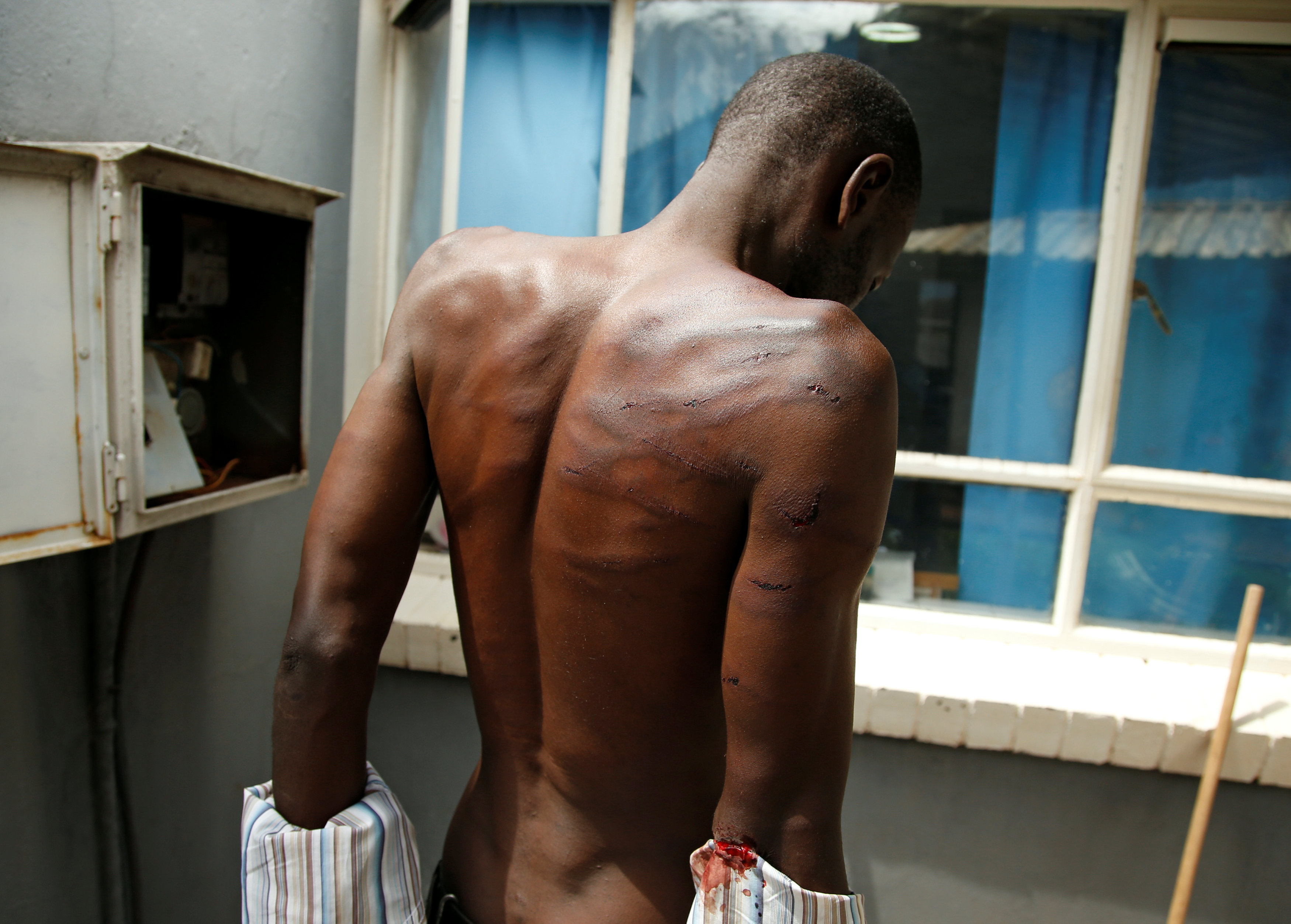The Zimbabwe bishops' justice and peace commission is collecting information on violence and human rights abuses in dioceses across the country.
"The victims very often come to the church to seek help and visit our hospitals, and we bring those cases to the attention of the government, so they serve as evidence of what is happening," said Father Frederick Chiromba, general secretary of the bishops' conference. Also, some nongovernmental organisations have asked to visit clinics run by the church, he said in a report by the Jesuits in Zimbabwe.
The brutal crackdown by security forces followed mass protests a fortnight ago after unions called a national “shutdown” to protest against the more than doubling of fuel prices. Twelve people are reported to have been shot dead and hundreds were assaulted in the worst violence seen in Zimbabwe for a decade.
The Catholic Commission for Justice and Peace in Zimbabwe (CCJPZ), established in 1972, has recorded injustices and human rights abuses in crucial chapters of Zimbabwe's history since independence.
Best known is its March 1997 report on the situation in Matabeleland and the Midlands during the period of 1980-1988. "Breaking the Silence, Building True Peace" documented the series of massacres of Ndebele civilians known as Gukurahundi orchestrated by Robert Mugabe's North Korean-trained Zimbabwean Fifth Brigade.
A delegation of Zimbabwe’s Catholic Bishops led by Bishop Michael Bhasera of Masvingo met with Vice-President Constatino Chiwenga, the country's defence minister and the head of its national intelligence agency on 25 January, state-sponsored newspaper, the Herald, and the Jesuits in Zimbabwe report.
Fr Chiromba said the Church leaders met with Chiwenga in order to understand the “current situation”.
“It was simply to get an understanding on what provoked this situation and get answers why we are where we are and moving on, how government and the church can collaborate so that we move beyond this situation to a Zimbabwe we want,” Fr Chiromba said.
He said the discussions were cordial. “There is a lot of good will on both sides” to address the issues facing the nation and “hopefully moving forward the church and state can work together to resolve the crisis we find ourselves in.”
The Bishops issued a powerful pastoral letter on 17 January which condemned the government's "heavy-handed and intolerant handling" of dissent and criticised the continued influence of the military in the country’s governance system.
Chiwenga, formerly head of Zimbabwe's army, told the Herald: “We were sharing our ideas on our country with the Church and the Church sharing its ideas with us. We need to give them what we are doing in the economy. We give them what we want to do about our relations between the Church and Government. We have always engaged and I am Catholic myself.”
President Emmerson Mnangagwa, who cut short his trip to the World Economic Forum in Davos in order to deal with the crisis, has said violence by security forces was “unacceptable and a betrayal of the new Zimbabwe.”
Nelson Chamisa, leader of the opposition party, Movement for Democratic Change (MDC), said on Tuesday 29 January that the crackdown was intended to "cripple" the opposition and called for international intervention.
"I don’t how many dead bodies and how much blood must flow on the streets of Harare first, before we see the intervention of regional bodies," Chamisa said.
"This matter must be addressed by the international community and we need the intervention of the international community."
Zimbabwe is going through its worst economic crisis in a decade. Inflation is running at 40 per cent and unemployment at 80 per cent. People are increasingly unable to afford food, fuel or medicine.



 Loading ...
Loading ...